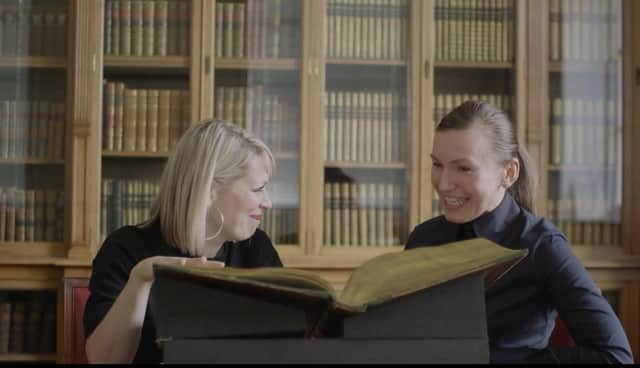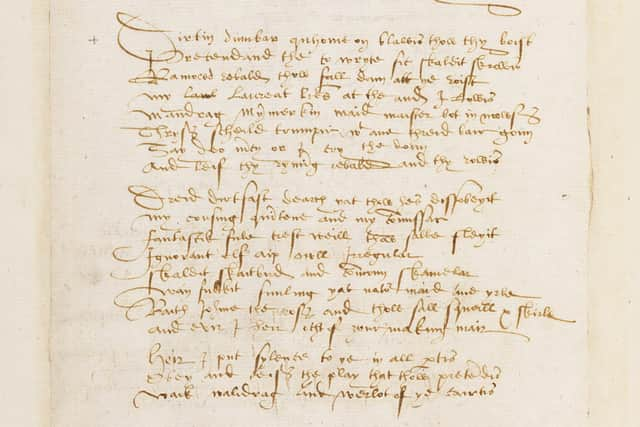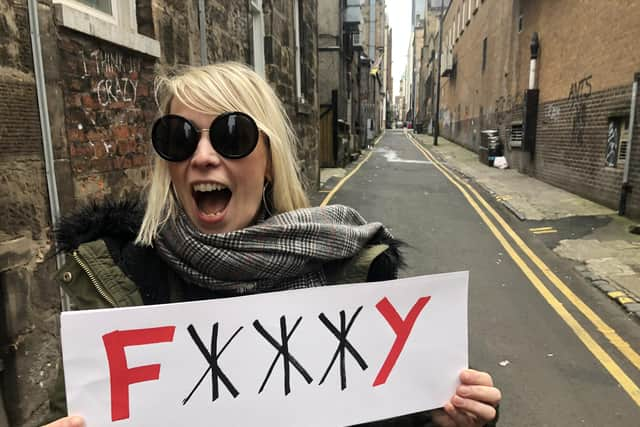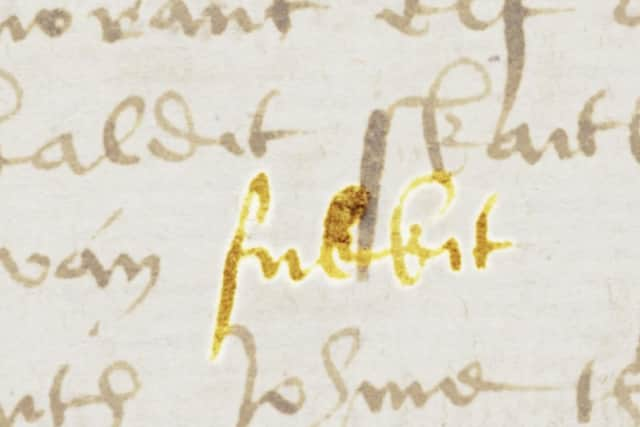Scotland's claim to fame as birthplace of the F-word revealed


Experts say the origins of the profanity can be traced all the way back to the 16th century equivalent of a rap battle.
An account of a “flyting” duel between two poets, held in the collection of the National Library of Scotland, is said to be its first recorded use anywhere in the world.
Advertisement
Hide AdAdvertisement
Hide AdThe hour-long BBC Scotland programme, which airs on Tuesday, sees actress, singer and theatre-maker Cora Bissett trace the nation’s long love affair with swearing and insults, despite the long-standing efforts of religious leaders to condemn it as a sin.


Billed as “a celebration of Caledonian cursing,” the documentary sees Bissett visit the National Library’s archives in Edinburgh for some detective work with Dr Joanna Kopaczyk, a historical linguistics expert from Glasgow University.
In Scotland – Contains Strong Language, they explore the Bannatyne Manuscript, one of the most important collections of medieval Scottish literature, which was compiled by the Edinburgh merchant George Bannatyne in 1568 when a plague struck the city and he was forced to stay at home.
The collection contains The Flyting Of Dunbar And Kennedy, an account by the poet William Dunbar of a duel with Walter Kennedy, said to have been conducted in Edinburgh before the court of King James IV of Scotland in around 1500.
In the documentary, which will go out on the BBC Scotland channel at 10pm, Dr Kopaczyk describes how Bannatyne’s collection describes “some very juicy language” and points out that one of insults traded between the two poets was the phrase “wan fukkit funling.”


She adds: “We are looking at a 500-year-old object. It’s a very precious manuscript and you can see the actual handwriting. In The Flyting Of Dunbar And Kennedy, when Kennedy addresses Dunbar, there is the earliest surviving record of the word ‘f***’ in the world.”
Bissett says: “It might never quite make the tourist trail, but here in the National Library we have the first written ‘f***’ in the world. I think that’s something to be proud of.”
A spokeswoman for the National Library said: “The Bannatyne Manuscript is a collection of some 400 poems compiled by the young Edinburgh merchant George Bannatyne in the last months of 1568, when an outbreak of plague in Edinburgh compelled him to stay indoors. It is one of the most important surviving sources of Older Scots poetry.
Advertisement
Hide AdAdvertisement
Hide Ad“The manuscript remained in his descendants’ possession until they gifted it to the National Library’s predecessor – in 1772.


“It has long been known that the manuscript contains some strong swearwords that are now common in everyday language, although at the time, they were very much used in good-natured jest.
“In particular the great slanging match between the poets William Dunbar and Walter Kennedy has been infamous for giving us the earliest known examples of these terms in written form.”
The documentary explores some of Scotland’s most celebrated controversies over bad language, including Billy Connolly’s famous run-ins with religious leader Pastor Jack Glass and author James Kelman’s 1994 Booker Prize winner How Late It Was, How Late, which is thought to contain the F-word more than 4,000 times, and charts the sweeping changes in attitudes to swearing by broadcasters.
John McCormick, former controller of BBC Scotland, who joined the corporation in 1970, says: “When I started out in the BBC there was a very strict no-swearing policy.
“Words like bloody, bugger and damn would be questionable – if you would ever hear them. If you were going into people’s homes, you wouldn’t want to use them.”
A message from the Editor:
Thank you for reading this story on our website. While I have your attention, I also have an important request to make of you.
With the coronavirus lockdown having a major impact on many of our advertisers - and consequently the revenue we receive - we are more reliant than ever on you taking out a digital subscription.
Advertisement
Hide AdAdvertisement
Hide AdSubscribe to scotsman.com and enjoy unlimited access to Scottish news and information online and on our app. With a digital subscription, you can read more than 5 articles, see fewer ads, enjoy faster load times, and get access to exclusive newsletters and content.
Visit https://www.scotsman.com/subscriptions now to sign up.
Our journalism costs money and we rely on advertising, print and digital revenues to help to support them. By supporting us, we are able to support you in providing trusted, fact-checked content for this website.
Frank O'Donnell
Editorial Director
Comments
Want to join the conversation? Please or to comment on this article.